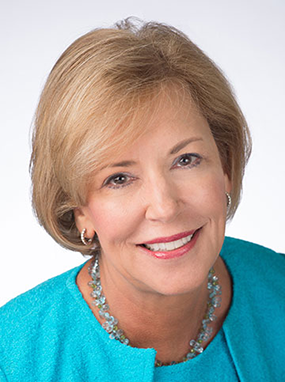Mastering new standards will require teams to dig into deep content learning
Mastering new standards will require teams to dig into deep content learning
By Stephanie Hirsh
October 2010
To date, more than 44 states have adopted the new Common Core State Standards, and I think about what this means for every teacher and student. I recall the summer I was part of a team writing a curriculum guide to accompany a newly adopted economics textbook. The team spent all summer translating state objectives into a semester course. By the end of the summer, we had developed expertise far greater than what we had gained from other experiences.
I had a great time teaching the course that year. I felt confident in my subject matter knowledge and, as a result, could focus significant attention on my students’ learning and differentiate instruction as needed.
My experience reminds me that in the coming year, many teachers will be asked to implement new standards. In many cases, these standards will represent unfamiliar content and skills. Teachers will need support translating them into quality instruction and successful learning outcomes.
I believe there are important actions that educators can take to ensure that all teachers have the opportunity to develop deep subject-matter knowledge and content pedagogical expertise in the courses they are assigned.
Engage educators in the process of translating the common core standards into the knowledge, skills, and dispositions students will be expected to master. Use the information to provide teachers with a rich curriculum that offers background on standards, explains underlying concepts, and suggests pedagogically sound instructional strategies and assessments. Demonstrations of effective teaching can also be helpful to teachers.
Seek educator input regarding the knowledge and skills they need to promote student mastery of the standards. For every set of knowledge and skills students are expected to master, there is a corollary set of knowledge and skills teachers must have to teach effectively. Giving teachers support to develop deep content knowledge associated with new core standards is one key to their success in the classroom. Equally important are substantive conversations about the discipline underlying the standards.
Support school-based learning teams to promote deeper understanding of the standards, the curriculum, and content through team learning time. They will benefit with access to rich curricula as well as protocols that allow them to facilitate their own conversations about how to translate standards into daily instructional lessons. Teachers with deeper understanding and more success in particular areas can volunteer to share or demonstrate what they know. Team leaders can ensure discussion of standards occurs before designing joint lessons and assessments. Teams can use their results to prompt requests for additional assistance from experts beyond the school.
Establish vertical and horizontal teams from within and across schools. Ensure the curriculum is vertically and horizontally aligned. Examine assessments for clues of any problems that may exist. Identify strategies that have the greatest impact and share them. Extend the commitment to students beyond a single grade level or course to the entire school and to schools within the system.
Establish online communities to extend educator learning. Educators can find learning communities that are ready to meet at times that are convenient to them. Communities can store resources virtually and effective lessons can flow from time zone to time zone. I am hopeful that every teacher will have the opportunity to join at least one community or team and experience serving as and learning from resident experts in a subject area.

Stephanie Hirsh retired in June 2019 after 31 years with Learning Forward, an international association of more than 13,000 educators committed to increasing student achievement through effective professional learning. Hirsh led the organization as its executive director for the last 13 years where she presented, published, and consulted on Learning Forward’s behalf across North America.
Recent Issues
EVALUATING PROFESSIONAL LEARNING
February 2024
How do you know your professional learning is working? This issue digs...
TAKING THE NEXT STEP
December 2023
Professional learning can open up new roles and challenges and help...
REACHING ALL LEARNERS
October 2023
Both special education and general education teachers need support to help...
THE TIME DILEMMA
August 2023
Prioritizing professional learning time is an investment in educators and...








